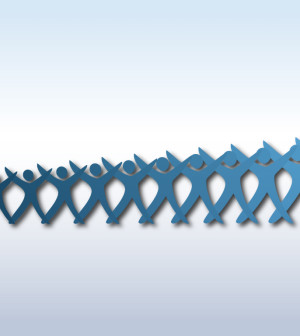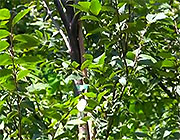- Could Artificial Sweeteners Be Aging the Brain Faster?
- Techniques for Soothing Your Nervous System
- Does the Water in Your House Smell Funny? Here’s Why
- Can a Daily Dose of Apple Cider Vinegar Actually Aid Weight Loss?
- 6 Health Beverages That Can Actually Spike Your Blood Sugar
- Treatment Options for Social Anxiety Disorder
- Understanding the Connection Between Anxiety and Depression
- How Daily Prunes Can Influence Cholesterol and Inflammation
- When to Take B12 for Better Absorption and Energy
- Epsom Salts: Health Benefits and Uses
Spring Allergies Have Arrived


It may not feel like it in some parts of the United States, but spring has arrived and that means it’s allergy season.
About 50 million Americans have seasonal allergies — also called hay fever — and suffer symptoms such as sneezing, stuffy or runny noses, and itchy eyes, nose and throat, according to the American College of Allergy, Asthma and Immunology.
“Even with snow still on the ground, trees have started budding and are the first to produce pollen, creating major problems for people with allergies,” Dr. David Rosenstreich, chief of the division of allergy and immunology at Montefiore Medical Center in New York City, said in a hospital news release.
“The symptoms people experience often resemble a common cold, but, if it happens every year at this time, it’s most likely to be allergies,” he explained.
Over-the-counter and prescription medications can help reduce allergy symptoms.
“By taking medicine early, you can prevent the symptoms before they begin,” Rosenstreich said. “If you start after the symptoms are in full swing, it’s much harder to stop the allergic reaction than to prevent it from the beginning.”
There are a number of other things you can do to control allergy symptoms, such as limiting your time outdoors on days with high pollen counts, and keeping your house and car windows closed to keep pollen out.
It’s also a good idea to use an air conditioner, which filters the outside air before it enters your home. Don’t mow your lawn or rake leaves, because this stirs up pollens and molds. Wash your hair after you’ve been outdoors, and don’t hang sheets or clothes outside to dry.
“There’s no reason for people with allergies to suffer. As long as you take the proper precautions, you should be able to enjoy the outdoors and make the most of the warm weather,” Rosenstreich said.
More information
The U.S. National Library of Medicine has more about hay fever.
Source: HealthDay
Copyright © 2026 HealthDay. All rights reserved.










